Cat
FromWikipedia,thefreeencyclopedia
Jumpto:navigation,search
Thisarticleisaboutdomesticfelines.Forotheruses,seeCat(disambiguation).
"Cats"redirectshere.Forotheruses,seeCats(disambiguation).
Cat[1]
Otherimagesofcats
Conservationstatus
Domesticated
Scientificclassification
Kingdom:Animalia
Phylum:Chordata
Class:Mammalia
Order:Carnivora
Family:Felidae
Genus:Felis
Species:F.catus
Binomialname
Feliscatus
(Linnaeus,1758)[2]
Synonyms
Feliscatusdomestica(invalidjuniorsynonym)[3]
Felissilvestriscatus[4]
Thecat(Feliscatus),alsoknownasthedomesticcatorhousecattodistinguishitfromotherfelines,isasmallpredatorycarnivorousspeciesofcrepuscularmammalthatisvaluedbyhumansforitscompanionshipanditsabilitytohuntvermin,snakesandscorpions.Ithasbeenassociatedwithhumansforatleast9,500years.[5]
Askilledpredator,thecatisknowntohuntover1,000speciesforfood.Itcanbetrainedtoobeysimplecommands.Individualcatshavealsobeenknowntolearnontheirowntomanipulatesimplemechanisms,suchasdoorknobs.Catsuseavarietyofvocalizationsandtypesofbodylanguageforcommunication,includingmeowing,purring,hissing,growling,squeaking,chirping,clicking,andgrunting.[6]Catsmaybethemostpopularpetintheworld,withover600millioninhomesallovertheworld.[7]Theyarealsobredandshownasregisteredpedigreepets.Thishobbyisknownasthe"catfancy".
UntilrecentlythecatwascommonlybelievedtohavebeendomesticatedinancientEgypt,whereitwasacultanimal.[8]howevera2007studyfoundthatthelinesofdescentofallhousecatsprobablyrunthroughasfewasFIVeself-domesticatingAfricanWildcatsFelissilvestrislybicacirca8000BC,intheNearEast.[4]
Contents[hide]
1physiology
1.1Size
1.2Skeleton
1.3Mouth
1.4Ears
1.5Legs
1.6Skin
1.7Senses
1.8metabolism
1.9Genetics
1.10Feedinganddiet
1.10.1Toxicsensitivity
2Behavior
2.1Sociability
2.2Cohabitation
2.3Fighting
2.4Play
2.5Hunting
2.6reproduction
2.7Hygiene
2.8Scratching
2.9Fondnessforheights
3Ecology
3.1Habitat
3.2Impactofhunting
4Housecats
4.1Domestication
4.2Interactionwithhumans
4.2.1Allergens
4.2.2Trainability
4.3Indoorscratching
4.3.1Declawing
4.4Waste
4.5Domesticatedvarieties
4.5.1Coatpatterns
4.5.2Bodytypes
5Feralcats
5.1Environmentaleffects
5.2Ethicalandhumaneconcernsoverferalcats
6Etymologyandtaxonomichistory
6.1Scientificclassification
6.2Nomenclature
6.3Etymology
7Historyandmythology
7.1Ninelives
8Seealso
9References
10Externallinks
10.1Anatomy
10.2Articles
10.3Veterinaryrelated
Physiology
Size
Diagramofthegeneralanatomyofamalecat.Catstypicallyweighbetween2.5and7kg(5.5–16pounds);however,somebreeds,suchastheMaineCoon,canexceed11.3kilograms(24.9lb).Somehavebeenknowntoreachupto23kilograms(51lb)duetooverfeeding.Conversely,verysmallcats(lessthan1.8kilograms(4.0lb))havebeenreported.[9]
Thelargestcateverwasofficiallyreportedtohaveweighedinatabout21.297kilograms(46.952lb)(46lb15.25oz).[10][11]
Skeleton
Catshave7cervicalvertebraelikealmostallmammals,13thoracicvertebrae(humanshave12),7lumbarvertebrae(humanshave5),3sacralvertebraelikemostmammals(humanshave5becauseoftheirbipedalposture),and,exceptforManxcats,22or23caudalvertebrae(humanshave3to5,fusedintoaninternalcoccyx).Theextralumbarandthoracicvertebraeaccountforthecat'senhancedspinalmobilityandflexibility,comparedwithhumans.Thecaudalvertebraeformthetail,usedbythecatasacounterbalancetothebodyduringquickmovements.Catsalsohavefree-floatingclaviclebones,whichallowsthemtopasstheirbodythroughanyspaceintowhichtheycanfittheirheads.[12]
Mouth
Catshavehighlyspecializedteethforthekillingofpreyandthetearingofmeat.Thepremolarandfirstmolartogethercomposethecarnassialpaironeachsideofthemouth,whichefficientlyfunctionstoshearmeatlikeapairofscissors.Whilethisispresentincanids,itishighlydevelopedinfelines.Thecat'stonguehassharpspines,orpapillae,usefulforretainingandrippingfleshfromacarcass.Thesepapillaearesmallbackward-facinghooksthatcontainkeratinwhichalsoassistintheirgrooming.
Asfacilitatedbytheiroralstructure,catsuseavarietyofvocalizationsandtypesofbodylanguageforcommunication,includingmewing("meow"or"miaow"),purring,hissing,growling,squeaking,chirping,clicking,andgrunting.[6]
Ears
Thirty-twoindividualmusclesineachearallowforamannerofdirectionalhearing:[13]acatcanmoveeachearindependentlyoftheother.Becauseofthismobility,acatcanmoveitsbodyinonedirectionandpointitsearsinanotherdirection.Mostcatshavestraightearspointingupward.Unlikedogs,flap-earedbreedsareextremelyrare.(ScottishFoldsareonesuchexceptionalmutation.)Whenangryorfrightened,acatwilllaybackitsears,toaccompanythegrowlingorhissingsoundsitmakes.Catsalsoturntheirearsbackwhentheyareplaying,ortolistentoasoundcomingfrombehindthem.Theangleofcats'earsisanimportantcluetotheirmood.
Legs
Cats,likedogs,aredigitigrades.Theywalkdirectlyontheirtoes,withthebonesoftheirfeetmakingupthelowerpartofthevisibleleg.Catsarecapableofwalkingveryprecisely,becauselikeallfelinestheydirectlyregister;thatis,theyplaceeachhindpaw(almost)directlyintheprintofthecorrespondingforepaw,minimizingnoiseandvisibletracks.Thisalsoprovidessurefootingfortheirhindpawswhentheynavigateroughterrain.
LikenearlyallmembersoffamilyFelidae,catshaveretractableclaws.Intheirnormal,relaxedpositiontheclawsaresheathedwiththeskinandfuraroundthetoepads.Thiskeepstheclawssharpbypreventingwearfromcontactwiththegroundandallowsthesilentstalkingofprey.Theclawsontheforefeetaretypicallysharperthanthoseonthehindfeet.[14]Catscanextendtheirclawsvoluntarilyononeormorepawsatwill.Theymayextendtheirclawsinhuntingorself-defense,climbing,"kneading",orforextratractiononsoftsurfaces(bedspreads,thickrugs,etc.).Itisalsopossibletomakeacooperativecatextenditsclawsbycarefullypressingboththetopandbottomofthepaw.Thecurvedclawsmaybecomeentangledincarpetorthickfabric,whichmaycauseinjuryifthecatisunabletofreeitself.
Mostcatshavefiveclawsontheirfrontpaws,andfourorfiveontheirrearpaws.Becauseofanancientmutation,however,domesticcatsarepronetopolydactylyism,andmayhavesixorseventoes.Thefifthfrontclaw(thedewclaw)isproximaltotheotherclaws.Moreproximally,thereisaprotrusionwhichappearstobeasixth"finger".Thisspecialfeatureofthefrontpaws,ontheinsideofthewrists,isthecarpalpad,alsofoundonthepawsofbigcatsanddogs.Ithasnofunctioninnormalwalking,butisthoughttobeananti-skiddingdeviceusedwhilejumping.
Skin
Catspossessratherlooseskin;thisallowsthemtoturnandconfrontapredatororanothercatinafight,evenwhenithasagriponthem.Thisisalsoanadvantageforveterinarypurposes,asitsimplifiesinjections.[15]Infact,thelivesofcatswithkidneyfailurecansometimesbeextendedforyearsbytheregularinjectionoflargevolumesoffluidsubcutaneously,whichservesasanalternativetodialysis.[16][17]
Theparticularlylooseskinatthebackoftheneckisknownasthescruff,andistheareabywhichamothercatgripsherkittenstocarrythem.Asaresult,catstendtobecomequietandpassivewhengrippedthere.Thisbehavioralsoextendsintoadulthood,whenamalewillgrabthefemalebythescrufftoimmobilizeherwhilehemounts,andtopreventherfromrunningawayasthematingprocesstakesplace.[18]
Thistechniquecanbeusefulwhenattemptingtotreatormoveanuncooperativecat.However,sinceanadultcatisheavierthanakitten,apetcatshouldneverbecarriedbythescruff,butshouldinsteadhaveitsweightsupportedattherumpandhindlegs,andatthechestandfrontpaws.Often(muchlikeasmallchild)acatwillliewithitsheadandfrontpawsoveraperson'sshoulder,anditsbacklegsandrumpsupportedundertheperson'sarm.
Senses
Thenoseofacat.Thefelinesenseofsmellisextremelysensitive.Mainarticle:Catsenses
Catsensesareattunedforhunting.Catshavehighlyadvancedhearing,eyesight,taste,andtouchreceptors,makingthecatextremelysensitiveamongmammals.Cats'nightvisionissuperiortohumansalthoughtheirvisionindaylightisinferior.
Humansandcatshaveasimilarrangeofhearingonthelowendofthescale,butcatscanhearmuchhigher-pitchedsounds,upto64kHz,whichis1.6octavesabovetherangeofahuman,andevenoneoctaveabovetherangeofadog.[19]
Adomesticcat'ssenseofsmellisaboutfourteentimesasstrongasahuman's.[20]
Duetoamutationinanearlycatancestor,oneoftwogenesnecessarytotastesweetnessmayhavebeenlostbythecatfamily.[21]
Toaidwithnavigationandsensation,catshavedozensofmovablevibrissae(whiskers)overtheirbody,especiallytheirface.
Metabolism
Twocatscurleduptogether.Catsconserveenergybysleepingmorethanmostanimals,especiallyastheygrowolder.Thedailydurationofsleepvaries,usually12–16hours,with13–14beingtheaverage.Somecatscansleepasmuchas20hoursina24-hourperiod.Thetermcatnapreferstothecat'sabilitytofallasleep(lightly)forabriefperiodandhasenteredtheEnglishlexicon–someonewhonodsoffforafewminutesissaidtobe"takingacatnap".
Duetotheircrepuscularnature,catsareoftenknowntoenteraperiodofincreasedactivityandplayfulnessduringtheeveningandearlymorning,dubbedthe"eveningcrazies","nightcrazies","elevenses"or"madhalf-hour"bysome.[22][23]
Thetemperamentofacatcanvarydependingonthebreedandsocialization.Catswithorientalbodytypestendtobethinnerandmoreactive,whilecatsthathaveacobbybodytypetendtobeheavierandlessactive.
Thenormalbodytemperatureofacatisbetween38and39°C(101and102.2°F).[24]Acatisconsideredfebrile(hyperthermic)ifithasatemperatureof39.5°C(103°F)orgreater,orhypothermiciflessthan37.5°C(100°F).Forcomparison,humanshaveanormaltemperatureofapproximately36.8°C(98.6°F).Adomesticcat'snormalheartraterangesfrom140to220beatsperminute,andislargelydependentonhowexcitedthecatis.Foracatatrest,theaverageheartrateshouldbebetween150and180bpm,abouttwicethatofahuman(average80bpm).
Genetics
Seealso:Catcoatgenetics
Blue-eyedcatswithwhitefurhaveareputationforhavinggreaterincidenceofgeneticdeafness.A2007studypublishedinthejournalScienceassertsthatallhousecatsaredescendedfromagroupofself-domesticatingdesertwildcatsFelissilvestrislybicacirca10,000yearsago,intheNearEast.[4]
Thedomesticatedcatanditsclosestwildancestorarebothdiploidorganismsthatpossess38chromosomes,[25]inwhichover200heritablegeneticdefectshavebeenidentified,manyhomologoustohumaninbornerrors.Specificmetabolicdefectshavebeenidentifiedunderlyingmanyofthesefelinediseases.Thereareseveralgenesresponsibleforthehaircoloridentified.Thecombinationofthemgivesdifferentphenotypes.
Featureslikehairlength,lackoftailorpresenceofaveryshorttail(bobtailcat)arealsodeterminedbysingleallelesandmodifiedbypolygenes.
TheCatGenomeProject,sponsoredbytheLaboratoryofGenomicDiversityattheU.S.NationalCancerInstituteFrederickCancerResearchandDevelopmentCenterinFrederick,Maryland,focusesonthedevelopmentofthecatasananimalmodelforhumanhereditarydisease,infectiousdisease,genomeevolution,comparativeresearchinitiativeswithinthefamilyFelidae,andforensicpotential.
Allfelines,includingthebigcats,haveageneticanomalythatmaypreventthemfromtastingsweetness,[21]whichisalikelyfactorfortheirindifferencetooravoidanceoffruits,berries,andothersugaryfoods.
Feedinganddiet
Thissectionneedsadditionalcitationsforverification.
Pleasehelpimprovethisarticlebyaddingreliablereferences.Unsourcedmaterialmaybechallengedandremoved.(March2008)
Furtherinformation:Catfood
Catsareclassifiedasobligatecarnivores,becausetheirphysiologyisgearedtowardefficientprocessingofmeat,andlacksefficientprocessesfordigestingplantmatter.Thecatcannotproduceitsowntaurine(anessentialorganicacid)initsownbodyandasitiscontainedinflesh,thecatmusteatfleshtosurvive(seeTaurineandcats).similarlyaswithitsteeth,acat'sdigestivetracthasbecomespecializedovertimetosuitmeateating,havingshortenedinlengthonlytothosesegmentsofintestinebestabletobreakdownproteinsandfatsfromanimalflesh.[26]Thistraitseverelylimitsthecat'sabilitytoproperlydigest,metabolize,andabsorbplant-derivednutrients,aswellascertainfattyacids.Forexample,taurineisscarceinplantsbutabundantinmeats.Itisakeyaminosulfonicacidforeyehealthincats.Taurinedeficiencycancauseaconditioncalledmaculardegenerationwhereinthecat'sretinaslowlydegenerates,eventuallycausingirreversibleblindness.
AcateatingahousemouseDespitethecat'smeat-orientedphysiology,itisstillquitecommonforacattosupplementitscarnivorousdietwithsmallamountsofgrass,leaves,shrubs,houseplants,orotherplantmatter.Onetheorysuggeststhisbehaviorhelpscatsregurgitateiftheirdigestionisupset;anotheristhatitintroducesfiberortracemineralsintothediet.Inthiscontext,cautionisrecommendedforcatownersbecausesomehouseplantsareharmfultocats.Forexample,theleavesoftheEasterLilycancausepermanentandlife-threateningkidneydamagetocats,andPhilodendronarealsopoisonoustocats.TheCatFanciers'Associationhasafulllistofplantsharmfultocats.[27]
Thereareseveralvegetarianorvegancommercially-availablecatfoodssupplementedwithchemically-synthesizedtaurineandotheraddednutrientsthatattempttoaddressnutritionalshortfalls.
Catscanbeselectiveeaters(whichmaybedueinsomewaytotheaforementionedmutationwhichcausedtheirspeciestolosesugar-tastingability).Unlikemostmammals,catscanvoluntarilystarvethemselvesindefinitelydespitebeingpresentedwithpalatablefood,evenafoodwhichtheyhadpreviouslyreadilyconsumed.
Catshaveafondnessforcatnip,whichissensedbytheirolfactorysystems.Manyenjoyconsumingcatnip,andmostwilloftenrollinit,pawatit,andoccasionallychewonit.
Toxicsensitivity
Theliverofacatislesseffectiveatdetoxificationthanthoseofotheranimals,includinghumansanddogs;thereforeexposuretomanycommonsubstancesconsideredsafeforhouseholdsmaybedangeroustothem.[28][29]Ingeneral,thecat'senvironmentshouldbeexaminedforthepresenceofsuchtoxinsandtheproblemcorrectedoralleviatedasmuchaspossible;inaddition,wheresuddenorprolongedseriousillnesswithoutobviouscauseisobserved,thepossibilityoftoxicitymustbeconsidered,andtheveterinarianinformedofanysuchsubstancestowhichthecatmayhavehadaccess.
Forinstance,thecommonpainkillerparacetamoloracetaminophen,soldunderbrandnamessuchasTylenolandPanadol,isextremelytoxictocats;becausetheynaturallylackenzymesneededtodigestit,evenminuteportionsofdosessafeforhumanscanbefatal[30][29]andanysuspectedingestionwarrantsimmediateveterinaryattention.[31]Evenaspirin,whichissometimesusedtotreatarthritisincats,ismuchmoretoxictothemthantohumansandmustbeadministeredcautiously.[29]Similarly,applicationofminoxidil(Rogaine)totheskinofcats,eitheraccidentalorbywell-meaningownersattemptingtocounterlossoffur,hassometimesprovedfatal.[32][33]
Inadditiontosuchobviousdangersasinsecticidesandweedkillers,othercommonhouseholdsubstancesthatshouldbeusedwithcautioninareaswherecatsmaybeexposedtothemincludemothballsandothernaphthaleneproducts,[29]aswellasphenolbasedproductsoftenusedforcleaninganddisinfectingnearcats'feedingareasorlitterboxes,suchasPine-Sol,Dettol(Lysol),hexachlorophene,etc.[29]which,althoughtheyarewidelyusedwithoutproblem,havebeensometimesseentobefatal.[34]Ethyleneglycol,oftenusedasanautomotiveantifreeze,isparticularlyappealingtocats,andaslittleasateaspoonfulcanbefatal.[35]
Manyhumanfoodsaresomewhattoxictocats;theobromineinchocolatecancausetheobrominepoisoning,forinstance,althoughfewcatswilleatchocolate.Toxicityincatsingestingrelativelylargeamountsofonionsorgarlichasalsobeenreported.[29]Evensuchseeminglysafeitemsascatfoodpackagedinpulltabtincanshavebeenstatisticallylinkedtohyperthyroidism;althoughtheconnectionisfarfromproven,suspicionhasfallenontheuseofbisphenolA-basedplastics,anotherphenolbasedproductasdiscussedabove,tosealsuchcans.[29]
Manyhouseplantsareatleastsomewhattoxictomanyspecies,catsincluded[28]andtheconsumptionofsuchplantsbycatsistobeavoided.
Behavior
Seealso:Catbehaviorandcatcommunication
Sociability
Catscanbefriendothercats.Here,onecatgroomstheother.Forcats,lifeincloseproximitywithhumans(andotheranimalskeptbyhumans)amountstoa"symbioticsocialadaptation"whichhasdevelopedoverthousandsofyears.Ithasbeensuggestedthat,ethologically,thehumankeeperofacatfunctionsasasortofsurrogateforthecat'smother,andthatadultdomesticcatslivetheirlivesinakindofextendedkittenhood,[36]aformofbehavioralneoteny.
Catsmayexpressaffectiontowardstheirhumancompanions,especiallyiftheyimprintonthemataveryyoungageandaretreatedwithconsistentaffection.
Regardlessoftheaveragesociabilityofanygivencatorofcatsingeneral,therearestillanynumberofcatswhomeetorexceedthenegativefelinestereotypeinsofarasbeingpoorlysocialized.Oldercatshavealsobeenreportedtosometimesdevelopaggressivenesstowardskittens,whichmayincludebitingandscratching;thistypeofbehaviorisknownasFelineAsocialAggression.[37]
Cohabitation
Onemayseenaturalhousecatbehaviorbyobservingferaldomesticcats,whicharesocialenoughtoformcolonies.[38]Eachcatinacolonyholdsadistinctterritory,withsexuallyactivemaleshavingthelargestterritories,andneuteredcatshavingthesmallest.Betweentheseterritoriesareneutralareaswherecatswatchandgreetoneanotherwithoutterritorialconflicts.Outsidetheseneutralareas,territoryholdersusuallyaggressivelychaseawaystrangercats,atfirstbystaring,hissing,andgrowling,andifthatdoesnotwork,byshortbutnoisyandviolentattacks.
Despitecohabitationincolonies,catsdonothaveasocialsurvivalstrategy,orapackmentality.Thismainlymeansthatanindividualcattakescareofallbasicneedsonitsown(e.g.,findingfood,anddefendingitself),andthuscatsarealwayslonehunters;theydonothuntingroupsasdogsorlionsdo.
Catsfrequentlytonguebathethemselves(seeHygiene).Thechemistryoftheirsaliva,expendedduringtheirfrequentgrooming,appearstobeanaturaldeodorant.Thus,acat'scleanlinesswouldaidindecreasingthechanceapreyanimalcouldnoticethecat'spresence.Bycontrast,dogodorisanadvantageinhunting,foradogisapackhunter;partofthepackstationsitselfupwind,anditsodordrivespreytowardstherestofthepackstationeddownwind.Thisrequiresacooperativeeffort,whichinturnrequirescommunicationskills.Nosuchcommunicationskillsarerequiredofalonehunter.
Fighting
Cats'actsofself-defenceinvolvearchingtheirbacks,turningsideways,andhissing.Whenengagedinfeline-to-felinecombatforself-defense,territory,reproduction,ordominance,fightingcatsmakethemselvesappearmoreimpressiveandthreateningbyraisingtheirfurandarchingtheirbacks,thusincreasingtheirapparentsize.Catsalsobehavethiswaywhileplaying.Attacksusuallycomprisepowerfulslapstothefaceandbodywiththeforepawsaswellasbites,butseriousdamageisrare;usuallytheloserrunsawaywithlittlemorethanafewscratchestotheface,andperhapstheears.Catswillalsothrowthemselvestothegroundinadefensiveposturetorakewiththeirpowerfulhindlegs.Normally,seriousnegativeeffectswillbelimitedtopossibleinfectionsofthescratchesandbites;thoughthesehavebeenknowntosometimeskillcatsifuntreated.Inaddition,suchfightingisbelievedtobetheprimaryrouteoftransmissionoffelineimmunodeficiencyvirus(FIV).Sexuallyactivemaleswillusuallybeinmanyfightsduringtheirlives,andoftenhavedecidedlybatteredfaceswithobviousscarsandcutsto
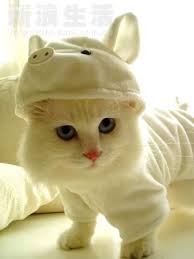 love cat
love catPlay
Twocatsplayfighting.Domesticcats,especiallyyoungkittens,areknownfortheirloveofplay.Thisbehaviormimicshuntingandisimportantinhelpingkittenslearntostalk,captureandkillprey.[39]Manycatscannotresistadanglingpieceofstring,orapieceofropedrawnrandomlyandenticinglyacrossthefloor.Thiswellknownloveofstringisoftendepictedincartoonsandphotographs,whichsho
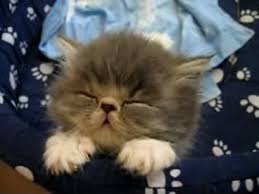 love cat
love catCatswillalsoengageinplayfighting,witheachotherandwithhumanpartners.Humans"wrestling"withasupinecat,however,shouldbewary:ifthec
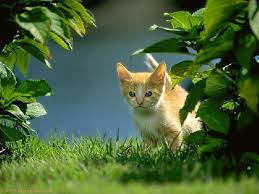 love cat
love catHunting
Domesticcatpresentingabirdtoitsowner.Muchliketheirbigcatrelatives,domesticandferalcatsareveryeffectivepredators.[40]Domesticfelinesambush
 love cat
love catOnepoorly-understoodelementofcathuntingbehavioristhepresentationofpreytohu
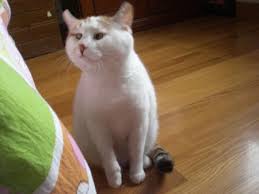 love cat
love cat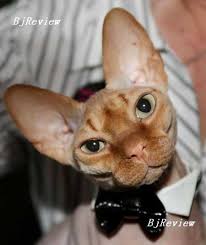 love cat
love catReproduction
